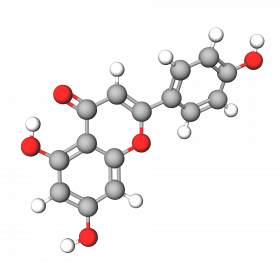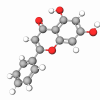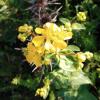Apigenin is a naturally occurring edible phenolic flavonoid compound widely distributed in fruits, vegetables, and medicinal plants. It exhibits a broad spectrum of biological activities, including anti-inflammatory and antioxidant effects, as well as anticancer and neuroprotective properties. The first study on Apigenin, conducted in the 1950s, analyzed its impact on histamine release. Since then, extensive research has been done on its anti-mutagenic, antitumor, and disease-preventive potential.
These findings highlight Apigenin's essential role in many botanical extracts used in skin care, including its ability to suppress inflammatory and allergic responses and strengthen the skin barrier. Such properties suggest its potential to alleviate psoriasis, acne, and atopic dermatitis, and to support post-procedure recovery.
Many preclinical studies confirm Apigenin's beneficial effects in skin, hair, and oral care products. It is a multifunctional ingredient that helps alleviate UV-induced skin damage, vitiligo, dermatitis, wounds, skin aging, and certain skin cancers. Its action mechanisms include suppression of pro-inflammatory cytokines and intracellular mediators, enhancement of endogenous antioxidant and immune defense systems, and promotion of antimicrobial peptide expression to reinforce the chemical barrier.
Recent studies have shown that the topical application of hair care preparations containing apigenin is effective in treating androgenetic alopecia. They obtained promising results, comparable to Minoxidil's effectiveness, and suggested this flavonoid as an active ingredient for anti-hair-loss and hair-growth-stimulating applications.Apigenin is a safe, eco-friendly, and effective ingredient, supported by strong scientific evidence from numerous clinical trials and a long history of use in medicine and cosmetics. It is used in many advanced botanical complexes, protective hair care products, and state-of-the-art wound dressings with a self-assembled collagen biomatrix.





